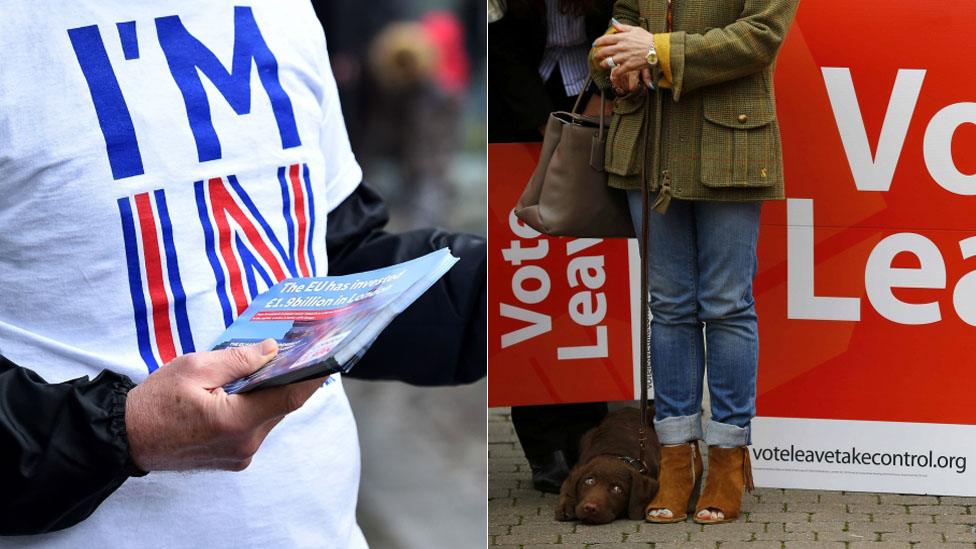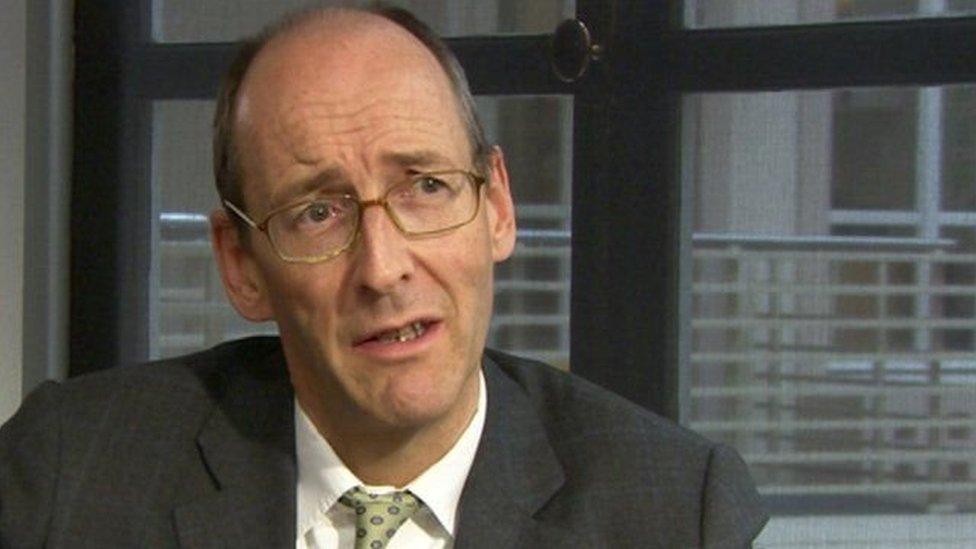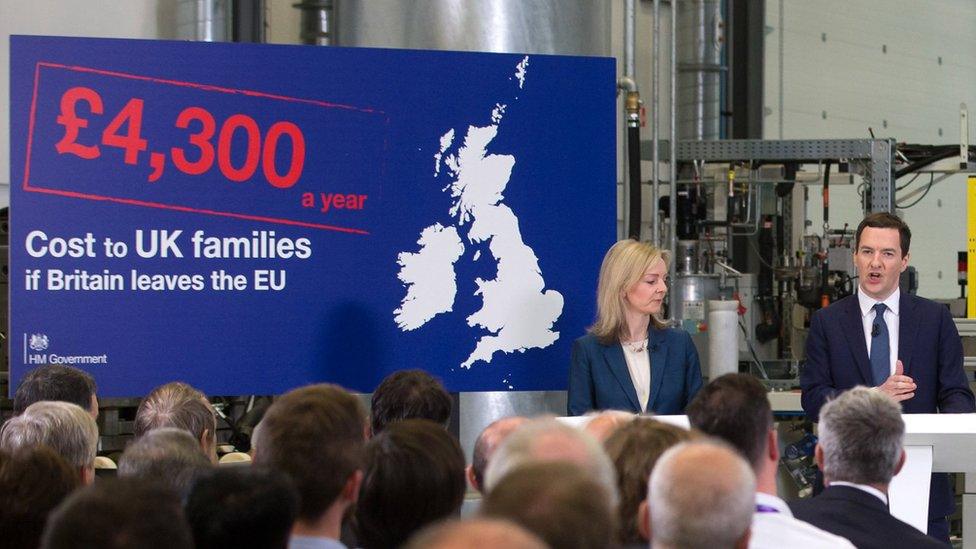EU referendum campaigns 'misleading voters'
- Published

Both sides in the EU referendum campaign have been accused of peddling "misleading" figures and "implausible assumptions" by a committee of MPs.
The Treasury Select Committee calls Vote Leave's claim that Brexit would save £350m a week "deeply problematic".
And it says Remain's claims families would be worse off by £4,300 a year if Britain quit the EU were "mistaken" and had "probably confused" voters.
The rival groups are failing to inform the public, the MPs say.
Vote Leave's £350m-a-week claim - repeated again today - does not take into account Britain's rebate and payments that flow back to the UK, the committee, chaired by Conservative MP Andrew Tyrie, says.
"Vote Leave's persistence with it is deeply problematic," the report says, external.
"It sits very awkwardly with its promises to the Electoral Commission to work in a spirit that reflects its 'very significant responsibility' and the 'gravity of the choice facing the British people'."
'Mistaken assertion'
The committee criticised Chancellor George Osborne over his claim that a Treasury analysis showed that "families would be £4,300 worse off" if Britain left the EU.
"This is not what the main Treasury analysis found - the average impact on household disposable incomes would be considerably smaller than this number, which refers to the impact on GDP per household," the report said.
"It may have left many readers thinking that the figures refer to the effect of leaving the EU on household disposable income, which they do not," the report added.
The report said government departments and Remain campaigners should not repeat this "mistaken assertion," adding: "To persist with this claim would be to misrepresent the Treasury's own work."


Reality Check: Have the campaigns been fair with figures?
The Claim: The two sides in the EU referendum campaign have been accused of peddling "misleading" figures and "implausible assumptions" by a committee of MPs.
Reality Check verdict: There is growing acceptance that both sides could be clearer about the figures they're using to support their arguments.

The committee also finds that it is misleading to claim that three million jobs are dependent on Britain's membership of the EU.
"Without an estimate of how much trade would be lost as a result of Brexit, the impact on job losses cannot readily be estimated," it said.
"The wider public might form the mistaken impression that all these jobs would be lost or at risk if the UK left the EU.
"Campaigners should be clear that three million jobs may be associated with, but would not necessarily be dependent on, our membership of the EU."
'Arms race'
Committee chairman Andrew Tyrie told BBC Radio 4's World at One that Vote Leave's £350m claim was "by far the most serious claim out there" which was "simply not true".
"But what we really need is an end to the arms race of ever more lurid claims and counter claims made by both sides on this.
"I think it's confusing the public, it's impoverishing political debate... the public are thoroughly fed up with it."

Andrew Tyrie is highly critical of the two campaigns
The report also singled out for criticism the behaviour of Vote Leave campaigners Matthew Elliott and Dominic Cummings, whose treatment of the committee was described as "appalling".
And the cross-party committee claimed it was "highly unsatisfactory" it had been was unable to scrutinise the government's analysis of the short-term impact of Brexit in time to include it in the report.
The report says: "It is to be hoped that scrutiny and transparency have not, in this case, been subordinated to the imperatives of the Number 10 'media grid'."
For Britain Stronger In Europe, Labour MP Wes Streeting said: "The committee's report has confirmed everyone's suspicions about Vote Leave - that they are a bunch of charlatans who mislead the British people and treat parliamentary democracy with contempt." He said the "case is now closed" on the economy: "Every expert accepts that leaving would result in an economic shock."
But for Vote Leave, Jacob Rees-Mogg, a member of the committee, said the report "shows that David Cameron's renegotiation fell short of the ambitions expressed in his Bloomberg speech of January 2013" and that the Remain campaign had used misleading claims.
'Most shockingly the chancellor, George Osborne, has consistently used a figure that he ought to have known would have been misunderstood and has misrepresented the Treasury's own analysis to do so."
The chairman of the UK Statistics Authority has again rebuked Vote Leave over the £350m claim. Sir Andrew Dilnot said, external that he was "disappointed" the group continued to claim the full amount could be spent in the UK, saying it "undermined trust in official statistics".
- Published22 April 2016

- Published17 May 2016

- Published18 April 2016
